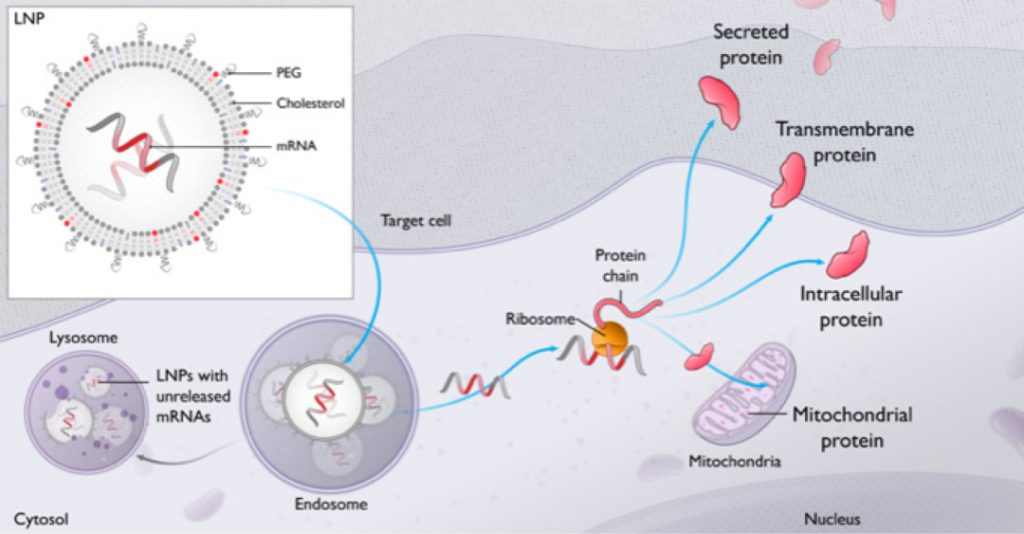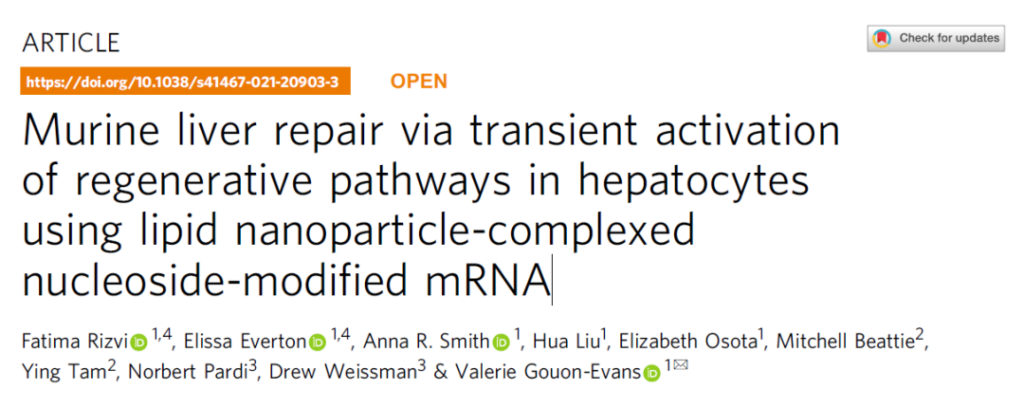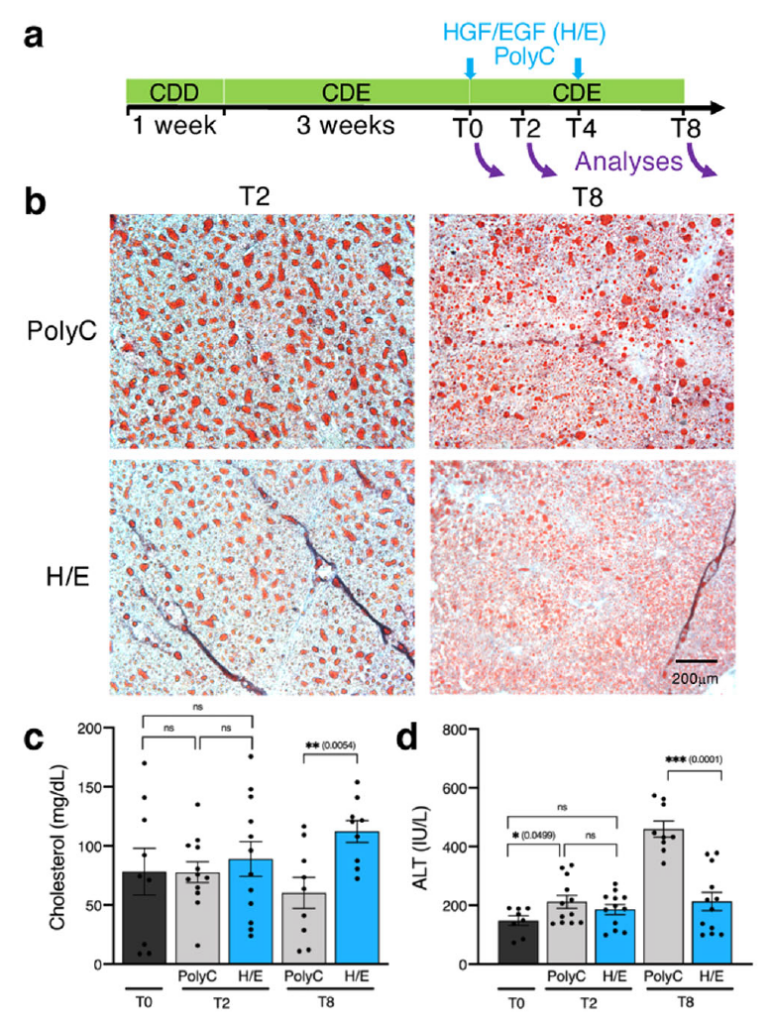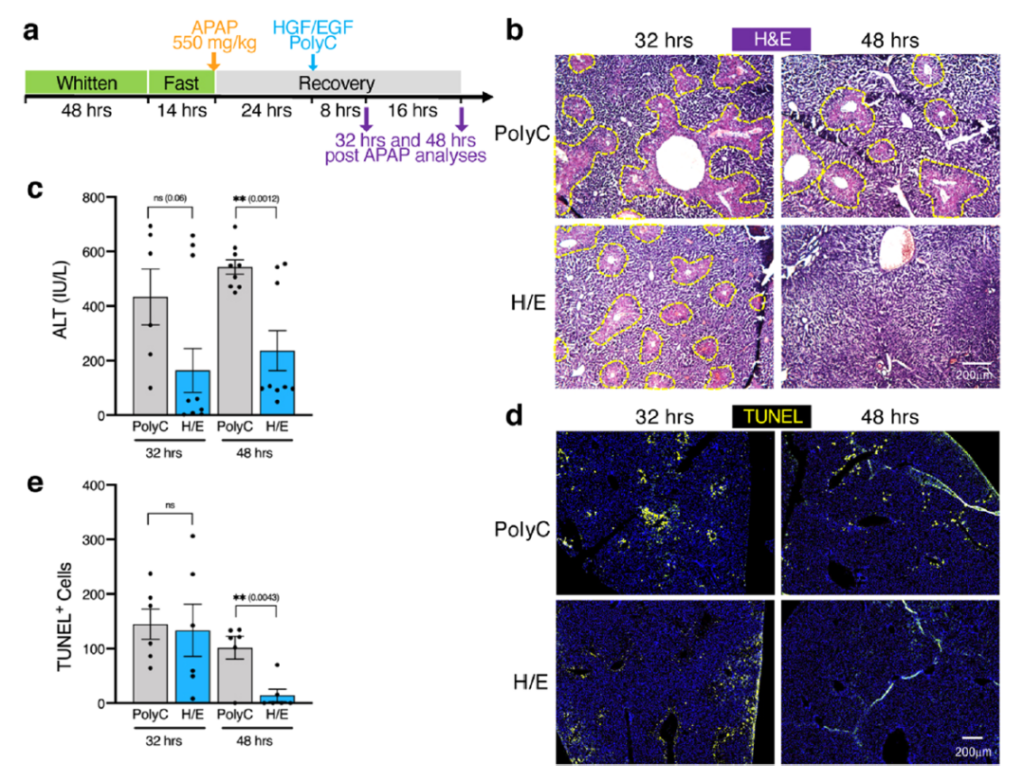Nature: Nanocarriers deliver mRNA to repair liver damage and promote liver regeneration
- Normal Liver Cells Found to Promote Cancer Metastasis to the Liver
- Nearly 80% Complete Remission: Breakthrough in ADC Anti-Tumor Treatment
- Vaccination Against Common Diseases May Prevent Dementia!
- New Alzheimer’s Disease (AD) Diagnosis and Staging Criteria
- Breakthrough in Alzheimer’s Disease: New Nasal Spray Halts Cognitive Decline by Targeting Toxic Protein
- Can the Tap Water at the Paris Olympics be Drunk Directly?
Nature: Nanocarriers deliver mRNA to repair liver damage and promote liver regeneration
Nature: Nanocarriers deliver mRNA to repair liver damage and promote liver regeneration. Since it was discovered that mRNA synthesized or transcribed in vitro can translate protein in vivo, people have been working on modifying mRNA to increase its stability and translation efficiency, and reduce its ability to cause inflammation.

The rapid approval and large-scale application of the two mRNA COVID-19 vaccines this time have attracted a lot of attention to the mRNA-LNP technology. Compared with other gene delivery vectors, lipid nanoparticles (LNP) have the advantages of safety, low immunogenicity, and non-integrity, which avoid the possible mutagenic risks of viral vectors.
In addition to the use of mRNA-LNP technology for the development of COVID-19 vaccines, ongoing clinical trials also include cancer immunotherapy and gene therapy.
Recent studies have shown that LNP delivery of VEGF gene mRNA to treat liver disease mouse models, and LNP delivery of Cas9 mRNA to treat tyrosinemia mouse models have achieved good results.
Recently, researchers from Boston University in the United States published a research paper titled: Murine liver repair via transient activation of regenerative pathways in hepatocytes using lipid nanoparticle-complexed nucleoside-modified mRNA in Nature Communications.
The research team used lipid nanoparticles (LNP) to encapsulate nucleoside modified mRNA to transiently express hepatocyte growth factor (HGF) and epidermal growth factor (EGF) in liver cells. Mouse model experiments show that the hepatocyte growth factor (HGF) delivered by LNP can efficiently induce hepatocyte regeneration, while the hepatocyte growth factor (HGF) and epidermal growth factor (EGF) delivered at the same time can quickly reverse the non-alcoholic fatty liver disease. The recovery of liver function in a mouse model of chronic liver injury can also promote liver regeneration in a mouse model of acute liver injury caused by acetaminophen.
The study established an effective, safe, and non-integrated method to deliver nucleoside modified mRNA through lipid nanoparticles (LNP) to repair liver damage and promote liver regeneration.

The research team injected the firefly luciferase mRNA delivered by LNP intravenously and found that LNP can efficiently transfect liver cells, and the delivered mRNA can maintain protein for about 3 days.
Further mouse model experiments show that LNP can deliver hepatocyte growth factor (HGF) and epidermal growth factor (EGF), which can promote the liver repair of chronic liver injury, which is non-alcoholic fatty liver, as well as the liver with acute liver injury. repair.

LNP delivers HGF/EGF to promote the repair of chronic liver damage

LNP delivers HGF/EGF to promote acute liver injury repair
In summary, this study shows that the delivery of nucleoside-modified mRNA through lipid nanoparticles (LNP) can instantaneously but stably translate into protein in the cell, rapidly activate the regeneration pathway in liver cells, and accelerate the injury Liver regeneration.
The delivery strategy based on mRNA-LNP has the advantages of non-inflammatory and non-integration, and the protein translated by the delivery of mRNA by LNP vector can be expressed in the liver in a short-term controllable manner, and will not cause harmful consequences such as carcinogenesis due to long-term expression of proliferation signals .
Therefore, mRNA-LNP is an ideal treatment strategy, which can activate the regeneration pathway of hepatocytes in a short period of time for the treatment of liver damage caused by various reasons.
(source:internet, reference only)
Disclaimer of medicaltrend.org



